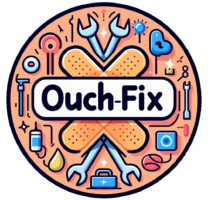Living with chronic or recurring pain can make even simple tasks feel overwhelming. While medications and physical therapy remain common treatments, many people are now turning to non-invasive, drug-free alternatives like TENS therapy. But what exactly is a TENS unit, how does it work, and which one is best for home use?
In this in-depth guide, we’ll explore the science behind TENS, its benefits and limitations, conditions it can help treat, and practical tips for safe use at home. By the end, you’ll have a clear idea of whether a TENS unit is right for you—and how to choose the best model for your needs.
How Does TENS Help with Pain?
The exact science behind TENS therapy is still being studied, but experts believe it works in two main ways:

Blocking pain signals: The electrical impulses interfere with nerve pathways, preventing pain messages from reaching your brain.
Stimulating endorphin release: The stimulation may trigger your body to produce endorphins—natural painkillers that can improve mood and reduce discomfort.
For many people, this results in noticeable pain relief during treatment sessions. Some even continue to feel better for several hours afterward.
📌 Interesting fact: Research published in the Journal of Pain suggests that TENS can significantly reduce both acute and chronic pain for certain conditions when used consistently.
What’s a TENS Unit?
TENS stands for Transcutaneous Electrical Nerve Stimulation. It’s a small, portable, battery-operated device that delivers gentle electrical impulses to your nerves through sticky pads (called electrodes) placed on the skin.
Think of it as a “mini remote” for pain relief—lightweight, handheld, and easy to carry around. While healthcare professionals often use TENS therapy in clinics, many consumer-friendly models are designed for safe home use.
These devices have been around since the 1970s, but modern TENS units are far more advanced, offering customizable settings, pre-programmed modes, and even wireless options controlled via smartphone apps.

Also Read: Which Natural Supplements are Most Effective for Chronic Pain?
What Conditions Can TENS Help Treat?
TENS therapy is often used as part of a multimodal pain management plan. Doctors may recommend it for a variety of conditions, including:

- Back pain (lower back strain, sciatica)
- Osteoarthritis (knee or hip joint pain)
- Fibromyalgia (widespread muscle and nerve pain)
- Tendinitis and bursitis
- Chronic pelvic pain
- Diabetic neuropathy (nerve pain from diabetes)
- Peripheral artery disease (PAD)-related pain
- Sports injuries or muscle soreness
👉 While TENS can provide meaningful relief, it is not a cure for underlying conditions. Instead, it should be seen as a complementary therapy.
How Does the TENS Device Actually Work?
Here’s a breakdown of how a TENS unit functions during use:
- Placement of electrodes: Sticky pads are applied near the painful area or along nerve pathways.
- Transmission of pulses: The device sends controlled, low-voltage electrical impulses.
- User customization: Intensity, frequency, and duration can be adjusted.
- Sensation: Most people describe the feeling as a mild tingling, buzzing, or tapping. It should never be painful.
- Some modern units include preset modes for back pain, arthritis, or muscle recovery, making them especially beginner-friendly
How Often Can You Use It?
You can usually use a TENS unit several times a day, for up to an hour each time. But it’s best to check with your doctor to be safe.

Also Read: How do Various Pain Relief Patches Compare in Effectiveness?
Who Should Not Use a TENS Unit?
Most people safely use a TENS unit 2–3 times per day, for sessions lasting 20–60 minutes.
Relief may last for several hours post-treatment, though this varies.
Always follow your doctor’s recommendations—especially if you have other medical conditions.
📌 Tip: Consistency often matters more than intensity. Start with shorter sessions and lower settings, then adjust based on comfort.

- A pacemaker or implanted device
- Cancer
- Epilepsy
- Deep vein thrombosis (DVT)
- Bleeding problems
- Heart issues
Also, don’t use TENS near or on:
- Open wounds or infected skin
- Varicose veins
- Your eyes, mouth, or front/side of your neck
- Your head or genitals
- Areas with no feeling
- Skin treated with radiation
Always talk to your healthcare provider before using a TENS unit, especially if you have other health conditions.
Pros and Cons of TENS Therapy

Benefits:
- Non-invasive (no needles or surgery)
- Can be used on its own or with medications
- Might reduce the need for pain meds (talk to your doctor first!)
- Portable and easy to use
- Helps many people manage pain effectively
Possible Side Effects:
- Skin irritation or allergic reaction from the sticky pads
- Tingling or prickly feeling that some people find uncomfortable
- Rarely, minor burns from the electrodes

Also Read: Best Massage Device for Muscle Soreness
When Will You Feel Relief?
- Immediate relief: Many users notice pain reduction within minutes of starting a session.
- Short-term relief: Pain may stay reduced for several hours afterward.
- Long-term relief: Regular use may lead to better overall pain management, but results vary.
📌 Case study: A 2021 review in Pain Medicine found that consistent TENS use improved quality of life in patients with osteoarthritis over a 12-week period.
When to Call Your Doctor
While side effects are rare, stop using TENS and consult a professional if you experience:
- Persistent skin irritation or allergic reactions.
- Unusual dizziness or headaches.
- Increased pain instead of relief.
- Nausea during or after sessions.
Conclusion: Is TENS Right for You?
TENS therapy offers a safe, portable, and non-drug option for managing pain at home. While it may not work for everyone, many users experience meaningful relief from conditions like arthritis, fibromyalgia, and back pain.
If you’re considering a TENS unit, talk to your healthcare provider first, then choose a model that fits your lifestyle. With consistent use and proper settings, a TENS unit may become a valuable tool in your pain management toolkit.
FAQs About TENS Units
Q1. Is TENS therapy safe for daily use?
Yes, most people can use it daily. Just follow your doctor’s advice and avoid overuse.
Q2. Can TENS replace pain medication?
Not entirely. While it may reduce the need for medication, it should complement—not replace—medical treatment.
Q3. Is there a risk of getting “shocked”?
No, TENS devices deliver very low-voltage pulses designed to be safe.
Q4. Can athletes use TENS for recovery?
Yes. Many athletes use TENS to reduce soreness and speed up recovery after workouts.
Q5. Do I need a prescription?
Some high-powered models require one, but many FDA-cleared OTC units are available online or in pharmacies.






